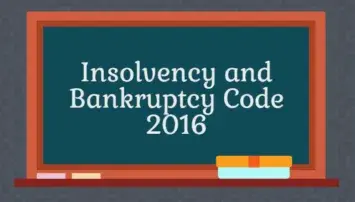By Nihit Nagpal and Anuj Jhawar
The question whether the institution or continuation of a proceeding under Section 138/141 of the Negotiable Instruments (NI) Act can be said to be covered by the moratorium provision, namely, Section 14 of the Insolvency and Bankruptcy Code (IBC) has been a crucial issue in the legal domain. Various High courts have had dissenting opinion in relation to this concerning matter. However the Apex court has now put an end to all doubts and confusions. While dealing with this issue the court observed that the declaration of moratorium covers criminal proceedings for dishonor of cheque against corporate debtor.
RELEVANT PROVISION
“Moratorium
(1) Subject to provisions of sub-sections (2) and (3), on the insolvency commencement date, the Adjudicating Authority shall by order declare moratorium for prohibiting all of the following, namely:–
(a) the institution of suits or continuation of pending suits or proceedings against the corporate debtor including execution of any judgment, decree or order in any court of law, tribunal, arbitration panel or other authority;”[1]
Thus, on the day insolvency proceedings are commenced, it is the duty of the Adjudicating Authority to pass orders declaring moratorium. The declaration of moratorium shall prohibit institution of any fresh suit or continuation of pending suit or proceedings against the corporate debtor. It shall even include the execution of any decree, order or judgement in any court of law.
SUPREME COURT’S ORDER
In P Mohanraj and others v M/s Shah Brothers Ispat Ltd[2]and related matters before the Supreme Court, the continuation of the criminal proceedings under Section 138 of NI Act during the pendency of liquidation proceedings under IBC was challenged. The bench comprising of Justices RF Nariman, Navin Sinha and KM Joseph held that a proceeding under Section 138 and 141 of NI Act against the corporate debtor will be covered under Section 14(1)(a) of IBC. They clarified that this moratorium shall stand extended only to the corporate debtor. The benefit of moratorium did not stand extended on judicial proceedings in cheque bounce cases to directors or signatories of cheques of such firms, saying criminal cases would continue against “natural persons”.
The Apex Court, disagreeing with the views taken by various High Courts, observed that a proceeding under Section 138 NI Act was a ‘quasi criminal proceeding’. It was meant to enforce a civil remedy and therefore it would amount to a proceeding within the meaning of Section 14(1)(a) of IBC, attracting the moratorium.
It was observed that the ambit of Section 14 of IBC was very wide and it was clear that the expression “institution of suits or continuation of pending suits” was to be read as one category, and the disjunctive “or” before the word “proceedings” would make it clear that proceedings against the corporate debtor would be a separate category. “Since criminal proceedings under the Code of Criminal Procedure, 1973 (CrPC) are conducted before the courts mentioned in Section 6 of CrPC, it is clear that a Section 138 proceeding being conducted before a Magistrate would certainly be a proceeding in a court of law in respect of a transaction which relates to a debt owed by the corporate debtor”
In respect to the objective of the moratorium, the Court observed that the main intention of the policy makers was to form a scheme which shields the corporate debtor from pecuniary attacks. This was done to give them a breathing space so that they could continue to operate and rehabilitate itself. Allowing Section 138 matters would crack this shield and bound to have adverse consequences.
While examining the provisions of the NI Act, the bench observe that Section 138 is a hybrid provision to enforce payment under a bounce cheque. The main objective is not to penalize the wrongdoer for an offence but to compensate the victim. “It is clear that a Section 138 proceeding can be said to be a ‘civil sheep’ in a ‘criminal wolf’s’ clothing, as it is the interest of the victim that is sought to be protected, the larger interest of the State being subsumed in the victim alone moving a court in cheque bouncing cases, as has been seen by us in the analysis made … Chapter XVII of the Negotiable Instruments Act.”
CONCLUSION
Thus, for the period of moratorium, since no Section 138/141 proceeding can continue or be initiated against the corporate debtor because of a statutory bar, such proceedings can be initiated or continued against the persons mentioned in Section 141(1) and (2) of the Negotiable Instruments Act
[1] Section 14 of the Insolvency and Bankruptcy Code (IBC) 2016.
[2] LL 2021 SC 120


